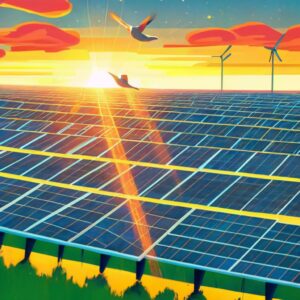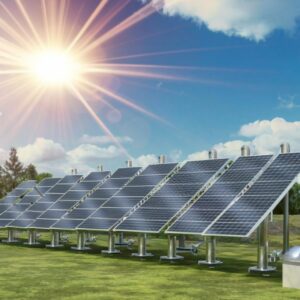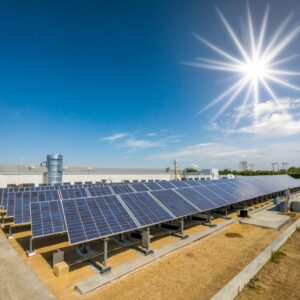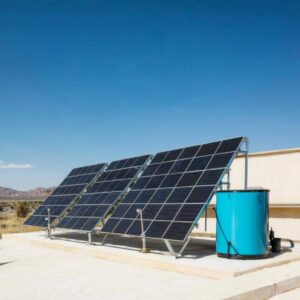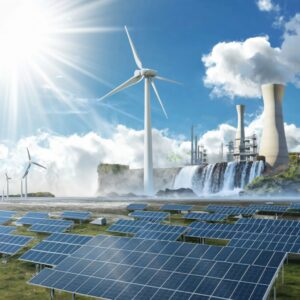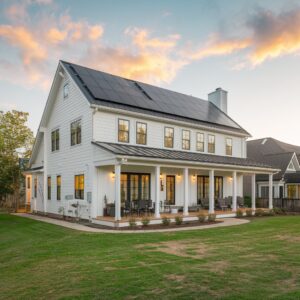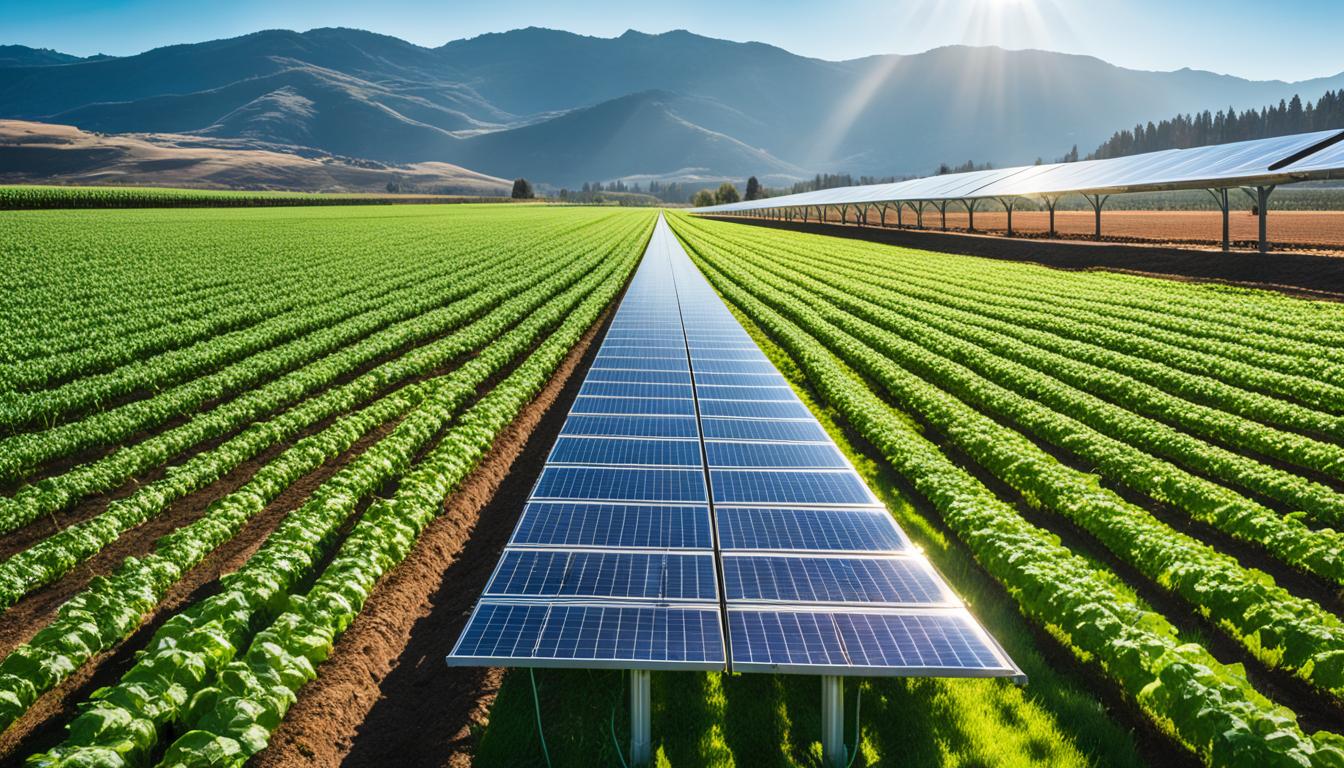
Being a farmer, I know how crucial it is to farm sustainably. It’s about using smart solutions to get more crops with less harm to nature. One big leap in farming is using the sun’s power to water our fields. This method, called agrivoltaics, uses solar panels to make farming greener and the harvests bigger.
Key Takeaways:
- Solar energy for irrigation, or agrivoltaics, combines renewable energy and crop cultivation for sustainable farming.
- Solar panels provide shade, reducing water consumption and increasing crop yield.
- Agrivoltaics can protect crops from extreme weather conditions, enhancing resilience and productivity.
- Implementing renewable energy solutions like solar panels and wind turbines can lead to cost savings and energy independence for farmers.
- By embracing solar energy for irrigation and other renewable energy sources, the farming community can contribute to a greener and prosperous future in agriculture.
The Science and Benefits of Agrivoltaics
Agrivoltaics combines farming with solar power. It places solar panels over crops. This method boosts land use, saves water, and helps crops grow better. It also makes farms more resilient against harsh weather.
Reduced Water Consumption
Agrivoltaics cuts down on the water needed for farming. The solar panels shade the crops. This shade lowers water evaporation from the soil. As a result, farmers don’t have to use as much water to grow their crops.
Increased Crop Yield
Solar panels cool the air around the crops. This helps the plants take in the sunlight without getting too hot. Without this direct sun, crops like cilantro and tomatoes grow better. They also need less water to flourish.
“Agrivoltaics enables farmers to protect their crops from extreme heat and heavy precipitation, providing a conducive environment for plant growth and improving crop resilience.”
This cool, shaded area under the solar panels also shields crops. It protects them from too much heat and heavy rain. This makes the farm more stable against the changing climate. So, farmers can count on good harvests, no matter the weather.
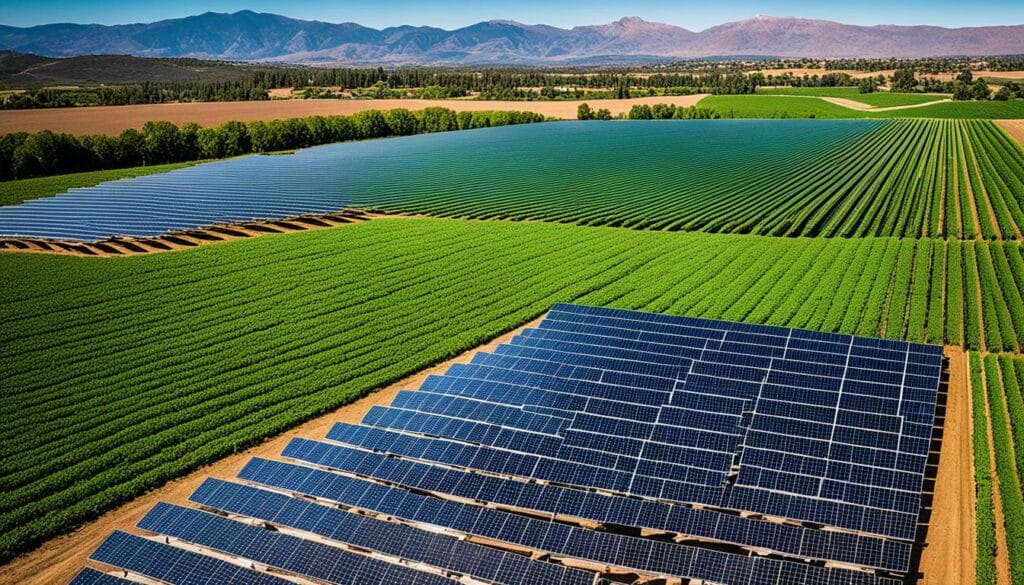
Implementation and Economic Benefits of Agrivoltaics in Farming
Solar energy is widely used on farms for its many benefits. It’s easy for farmers to set up solar panels on buildings or in fields. This lets them save on energy costs and help the environment by using clean energy. It reduces their need for non-renewable energy sources.
For farms in windy areas, wind energy is key. Wind turbines turn wind into power. This power can be used on the farm or sold, bringing in extra money.
Farms can also go green with biofuels like biodiesel and ethanol. They make these fuels from plants they grow, like corn or soy. This lowers their fuel costs and supports a greener planet.
Using renewable energy helps farms of all sizes save money and become more independent. It cuts down on expenses and boosts sustainability.
Conclusion
Switching to sustainable farming practices and renewable energy is key to a greener future. Agrivoltaics, which is combining solar panels with crops, helps both the land and the pocket. It saves water and boosts crop growth. This way, farmers help the planet and make more money.
No worries, help is available for farmers to go green. There are programs and tax breaks from the federal and state governments. These give farmers a boost to use solar energy and other renewables. With this help, farms can rely less on old energy methods.
Going green with sustainable and renewable energy saves money and makes farms stronger. As solar panels and other green tech get easier to get, it’s a smart move for all farmers. Now is the time for farming to lead the way in green energy. This will push for a bright future that is kind to the earth and successful in business.

